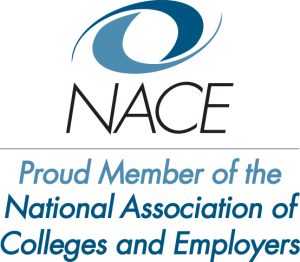Does PathwayU’s Fit Approach Work with Marginalized Groups?
An essential question when providing career development support to students is whether your approach is effective for all students, including—indeed, especially—those from marginalized groups. Such students are underrepresented in the career development research literature and underserved by many institutions in society. As a result, very reasonable concerns have been raised that standard approaches to counseling and assessment may be less effective and even potentially harmful for marginalized students.
Some administrators and clinicians have asked us whether PathwayU’s approach really works for everyone. This is a critical question, one we encourage counselors, coaches, and administrators to ask of any assessment or intervention strategy they might use.
Chief Science Officer of @pathway_u, @bryandik, breaks down how their platform tool works for ALL students, not just a select few:Click to TweetWhat Makes PathwayU Different
When we created PathwayU, we followed the science of what works in career decision-making at every step. That meant attending not only what works in general but what works for the broadest array of people possible.
This is one reason we built our system around interests, values, personality, and workplace cultural preferences—constructs that have been shown to have very few differences across demographic groups (e.g., race/ethnicity, gender, sexual orientation, disability status), a point Kurt Kraiger and I explored in a couple of recent posts (here and here).
But more than simply examining mean differences across groups, we also examined evidence from research that has tested the notion of person-environment fit as a predictor of career outcomes. This was a crucial consideration, given how valuable our patented fit algorithm is in recommending career paths to students based on their unique psychological profiles. Research on this question with marginalized groups is still limited, but it does exist. What does it reveal?
What We've Found
While there are some complexities, the research quite consistently shows that person-environment fit works very well for marginalized populations studied to date—at least as well and in some cases better than for majority or privileged populations. Research on vocational interests, for example, shows that across all gender and race categories, the proportion of people who enter career paths consistent with their scores on interest inventories (and find satisfaction there) far exceeds the chance rate. Research examining person-environment fit as a predictor of outcomes (e.g., satisfaction and performance) also supports its use with marginalized populations.
Hear from @bryandik, Chief Science Officer of PathwayU, about how @pathway_U’s platform tool works for all students, including marginalized groups, in their latest blog:Click to TweetFor example, research examining the Theory of Work Adjustment—a popular “fit” theory that informed PathwayU’s development—has found support for the major tenets of the theory with LGB individuals, African American workers, Latinx immigrant workers, women of color, older workers, and persons with intellectual disabilities.
Similarly, research examining Holland’s model of vocational types—another theory that is leveraged within PathwayU—reveals some complexities but generally supports its cross-cultural validity. As for clients from lower social status backgrounds, evidence testing the relationship between P-E fit and job satisfaction (conceptualized using Holland’s model) has found stronger relations for individuals who perceived less rather than more control over their work environments.
What about research testing differences by examining PathwayU directly?
PathwayU's Findings
In our early research with a PathwayU prototype, we found that the effectiveness of engaging PathwayU did not differ across gender, race/ethnicity, or disability status. Results did reveal a difference across self-reported social status, in a very favorable direction: those low in self-reported socioeconomic status (SES) reported the largest positive effects. This latter result may reflect that many lower-SES students may have had limited access to career development support, which made PathwayU an especially valuable experience for them.
In short, we designed PathwayU purposefully to provide effective career development support for all students. The available evidence suggests that the models on which PathwayU is based and the experience of engaging PathwayU directly achieve this goal.
To learn more about PathwayU reach out to one of our experts today!
-1.png?width=288&height=67&name=PathwayU_PGLogo%20(1)-1.png)











